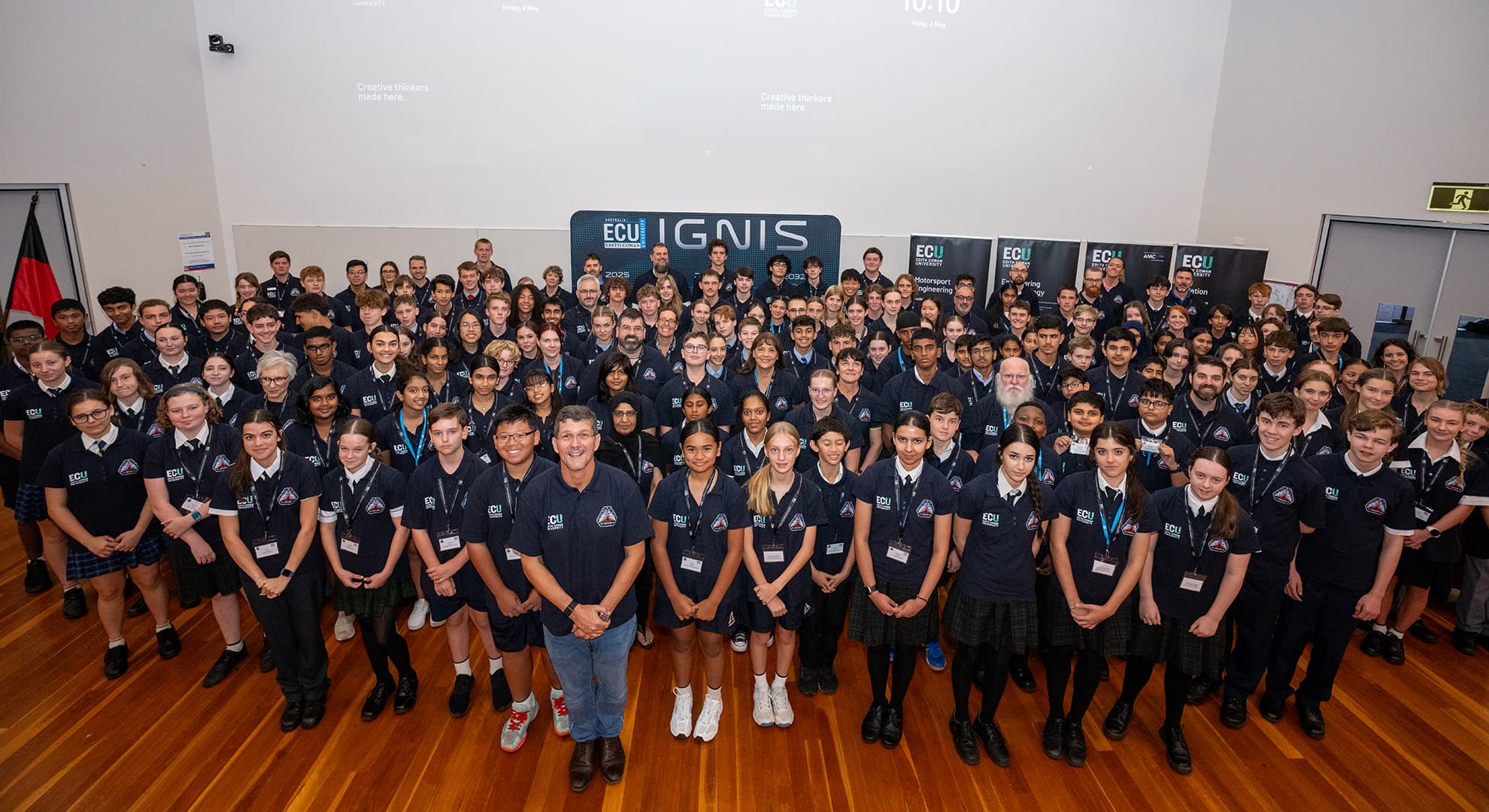Under its IGNIS collaborative study with US space agency NASA, Edith Cowan University (ECU) is partnering with Western Australia high schools to offer students the opportunity to participate in real-world research.
Year 7 to 11 students from 23 high schools across Western Australia, including three schools from regional Western Australia, have been offered an internship program with the IGNIS project.
The IGNIS mission will be conducted over three stages, the first of which is the airborne survey of southwest Western Australia to map temperature signatures across the state, as well as lightning activities.
The second stage of IGNIS would involve a launch of a 12U satellite to map and track thermal and lightning patterns from Low Earth Orbit, while the inspirational third stage would involve a deep-space mission, which is aimed at observing the interaction of solar activity and lightning on Jupiter and one of its moons called Io.
The aim of the deep space mission would be to use lightning as a means to understand the chemistry of that Planet.
The IGNIS student internship program will allow students to work directly with ECU School of Engineering academics and researchers, as well as aerospace industry professionals, NASA scientists and Aboriginal rangers. The internship program will empower students through immersive opportunities traditionally only found in university settings and allow them to become active contributors to the research.
In addition to teaching students how to conduct advanced data analysis and interpretation, the hands-on experience would also focus on all the research and mechanics necessary to ultimately understand what is required to build a satellite that will complement IGNIS project.
 The internship would give students an extraordinary opportunity to interact with scientists.
The internship would give students an extraordinary opportunity to interact with scientists.
ECU School of Engineering, Executive Dean, Professor Paulo de Souza said the internship would give students an extraordinary opportunity to interact with scientists that have not only studied space exploration, but who have been at the forefront of some of humanity's most ambitious scientific endeavours.
"Australia space sector needs to develop its capability. There are pressing problems requiring innovative solutions and jobs waiting for more talent STEM professionals.
"This internship will allow students to interact with experience space professionals, learn from them and help make a difference to our communities suffering from bushfires every year."
The student internship program will be hosted across six phases at the ECU Joondalup Campus between May and December, with the regional schools able to access these sessions remotely.
IGNIS Project is a collaboration led by ECU, with The University of New South Wales in Canberra (UNSW), The University of Adelaide, University of Technology Sydney (UTS), The University of Newcastle and the University of Alabama in Huntsville.

 Year 7 to 11 students from 23 high schools across Western Australia will participate.
Year 7 to 11 students from 23 high schools across Western Australia will participate.



